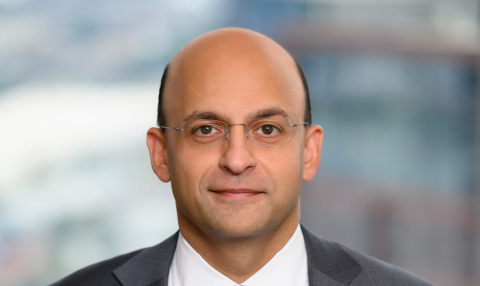Disruption in service sector favors leaders in health, finance and logistics, PGIM reports

Services now represent three-quarters of the workforce in developed markets, two-thirds of global GDP and more than one-third of the typical institutional portfolio. PGIM’s report, Reshaping Services: The investment implications of technological disruption, examines how advances in cloud computing, artificial intelligence (AI), machine learning (ML) and big data are impacting three of the economy’s largest industries: healthcare, finance and logistics.
The report draws on the insights of over 70 investment professionals across PGIM’s fixed income, equity, real estate, private credit and alternatives managers — as well as leading academics, technologists, industry analysts and venture investors.
The key takeaway? Disruption in these industries — where infrastructure costs are high, client bases are sticky and regulations abound — will increase the dominance of technology-forward incumbents rather than leave the trail of destruction seen in retail and manufacturing.
“The COVID-19 pandemic accelerated the development and deployment of new technologies that are radically reshaping winners and losers across the services sector in both developed and emerging markets,” said
KEY FINDINGS: THE FUTURE IS WEIGHTLESS IN FINANCIAL SERVICES
Disruptors in financial services are expanding the accessible market for financial firms, but today’s leaders have the opportunity to widen their moat against upstart competitors.
-
Neobanks are no threat to big institutions. In the
U.S. andEurope , neobanks offer great potential but are largely targeting unbanked and disengaged segments of the market rather than prime consumer and business lending clients that are the bread and butter of established consumer and commercial banks. - Robo-advisors have not vanquished traditional wealth managers. Conventional wisdom hailed robo-advisors as a revolution about to transform wealth management. However, this revolution fizzled as early movers in robo-advice lacked an expansive distribution network and found it virtually impossible to scale up to profitability. Instead, incumbent wealth management firms successfully integrated automated models into their own business.
- Investors should brace for regulatory backlash as it spills over into services. Regulatory and legal uncertainty is common across many aspects of innovative technologies including data privacy, ESG and anti-money laundering. The regulatory environment around startup banks and payment platforms remains unsettled.
KEY FINDINGS: HEALTHCARE GETS PERSONAL
Healthcare services has been a notorious laggard in adopting technology, but investors have huge opportunities to tap into a major shift in how healthcare is delivered and administered globally.
- Little opportunity for “winner takes all.” Given the varied circumstances patients face based on their geographic location, individual lifestyle and health risks, healthcare innovators are unlikely to “change the world.” Instead, they are finding relevant niches to disrupt — and often with great success.
- New technologies provide more personalized care. New wearables track heart rate, exercise levels and sleep patterns, providing patients and doctors with a broader perspective on well-being. Advances in low-cost genetic sequencing are empowering patients to make more personalized decisions about their healthcare. Meanwhile, the testing and diagnostic equipment necessary for this transformation will also thrive.
KEY FINDINGS: TRANSPORTATION & LOGISTICS GOES GREEN AND AUTONOMOUS
Transport and logistics are at the early stage for disruption — autonomous vehicles promise to be a major part of our transportation future; in logistics, optimization and efficiency are the focus.
-
Automobiles will be greener — but gasoline-powered engines will have a long sunset. Sales of electric vehicles (EV) in many parts of the world are growing rapidly. But the tremendous stock of internal combustion engines (ICE) will have a very long sunset. In 2050, for example, when EVs are projected to make up
60% of annual new car sales, the majority of cars on the road will still be fueled by gasoline. -
Autonomous vehicle adoption will not evolve in the same way everywhere. Autonomous trucking is likely to emerge first in the
U.S. , which depends on long-haul trucking for the distribution and transport of goods. ButChina , where fleets of autonomous robo-taxis are already roaming the streets in elaborate trials, is likely to lead the way in autonomous cars. - Global shift to online shopping yields greener logistics. Today, distribution centers are increasingly fueled by renewable energy with solar panels on their expansive roofs, while hydrogen fuel-cell powered forklifts and electric trucks replenish stock in last-mile warehouses for same-day delivery.
“Importantly, the hype around innovations like blockchain and autonomous vehicles is way ahead of today’s investable reality. Not all these changes will happen tomorrow — and the long sunset will provide opportunities for investors who can identify the transitional opportunities,” Hyat said. “Companies that will benefit from the necessary build-out of next-generation infrastructure may be a source of hidden gems yet to be unearthed in this market.”
For more, visit the microsite for Reshaping Services: The investment implications of technological disruption, the latest in PGIM’s Megatrends series.
ABOUT PGIM
PGIM, the global asset management business of
1 |
CONNECT WITH US:
Visit pgim.com
Join the conversation on Twitter@PGIM
View source version on businesswire.com: https://www.businesswire.com/news/home/20211014005201/en/
MEDIA CONTACTS
+1 973 902 2503
kylie.scott@pgim.com
+44 (0)7866154772
sharan.kaur@pgim.com
Source: PGIM







